Exit interviews play a vital role in understanding why employees leave and offer an invaluable opportunity to gather honest feedback.

By conducting these interviews, businesses can gain insights into potential issues within the workplace environment, company culture, or management practices that may be driving employees to move on. This feedback is essential for improving employee retention and ensuring the satisfaction of current and future employees.
At The HR Consultants, we recognise the importance of exit interviews as a key part of the offboarding process.
Here is a brief guide to what an exit interview entails, as well as the best exit interview questions that you should be asking.
[addCTA blink=""/services/hr-documentation/"" title=""Got an HR project that needs a touch of expert magic?""]
Table of Contents
- What Is the Purpose of an Exit Interview?
- Who Should Conduct the Exit Interview?
- When Should You Conduct an Exit Interview?
- How Can You Prepare for an Exit Interview?
- What Are the Key Questions to Ask During an Exit Interview?
- How Should You Analyse Exit Interview Data?
- What Should You Do with the Insights Gained from Exit Interviews?
- How Can Exit Interviews Enhance Employer Branding?
- Get in Touch
- Frequently Asked Questions
What Is the Purpose of an Exit Interview?
Exit interviews are an essential tool for understanding why employees choose to leave. According to a survey, over half of employees in the UK don't get an exit interview. They're vital for offering valuable insights that can help a company improve and grow.
Understanding Employee Satisfaction
One of the main goals of an exit interview is to gauge employee satisfaction. By asking departing employees about their experiences, companies can identify areas that may have contributed to dissatisfaction, such as management practices, work-life balance, or job expectations.
Identifying Trends and Patterns
Exit interviews also help in identifying trends and patterns among departing employees. If multiple employees cite similar reasons for leaving, it could indicate underlying issues within the organisation.
Improving Company Culture
The insights gained from exit interviews play a key role in enhancing company culture. Understanding how employees perceive the work environment and leadership can guide necessary changes to create a more positive and engaging workplace.
Who Should Conduct the Exit Interview?
The ideal person to conduct the exit interview is typically an HR representative. Having a neutral party handle the process is important for obtaining candid feedback from the departing employee.

When the interview is conducted by someone outside of the employee's direct management, it encourages openness and honesty, as the employee is more likely to feel comfortable sharing their true experiences and opinions.
How Should You Conduct an Exit Interview?
Understanding the right timing for conducting an exit interview is vital to gather valuable feedback and ensure a smooth transition for both the departing employee and the company.
The Role of HR Representatives
An HR representative is typically the best choice for conducting exit interviews. As a neutral party, HR professionals are positioned to gather candid feedback from departing employees without the influence of direct management.
Encouraging Openness and Honesty
When someone outside of the employee's direct management team conducts the interview, it creates a sense of trust and encourages openness.
Ensuring Unbiased Feedback
Conducting exit interviews through a neutral party ensures that the feedback collected is unbiased and reflective of the employee’s true experiences.
How Can You Prepare for an Exit Interview?
Proper preparation is key to ensuring that the exit interview provides valuable insights.

To get the most out of the process:
- Set Clear Objectives: Define what you want to achieve from the interview, such as understanding why the employee is leaving, identifying areas for improvement, and gathering feedback on their overall experience.
- Prepare Questions in Advance: Focus on topics like job satisfaction, and employee engagement. Having a prepared list ensures the conversation stays on track.
- Create a Comfortable Environment: Choose a setting where the employee feels relaxed and open to sharing honest feedback.
What Are the Key Questions to Ask During an Exit Interview?
Asking the right exit interview questions is essential to gaining valuable insights into why employees leave and how the organisation can further improve employee morale.

Why Did You Decide to Leave?
Understanding the primary reasons behind an employee’s decision to leave is important for identifying any underlying issues within the organisation. This question helps to uncover factors that might have influenced their departure, such as dissatisfaction with management, a lack of career growth opportunities, or a desire for a better benefits package.
Common reasons employees may choose to leave include:
- Dissatisfaction with management or leadership styles
- Limited career growth opportunities or lack of advancement prospects
- Desire for a better benefits package or compensation
- Poor work-life balance or demanding work schedules
- Unresolved conflicts within the team or department
- Lack of recognition or appreciation for their contributions
By asking this question, you can gather honest feedback that may reveal patterns or trends in why employees leave.
What Could We Have Done to Keep You?
This question is vital for understanding what might have encouraged the employee to stay, providing insights into areas where the company could improve. Whether it's related to compensation, work-life balance, or professional development opportunities, the answers can highlight key areas where the organisation may need to make changes.
By asking what could have made the difference, you gain actionable insights that can inform future retention strategies.
How Would You Describe Our Company Culture?
Asking about company culture gives departing employees the chance to reflect on the work environment and how it impacted their experience. Their response can reveal both strengths and weaknesses in the company's culture, providing valuable information for making improvements.
Understanding how employees perceive the culture is essential for creating a positive workplace. This feedback can help identify areas that may need attention, such as:
- Communication practices within teams and across departments
- Management styles and their effectiveness in supporting employees
- Team relationships and the overall sense of collaboration
Addressing these areas can lead to a more supportive and engaging environment for staff.
Did You Feel Supported in Your Role?
This question is essential for understanding whether the employee felt they had the resources, guidance, and support necessary to perform their job effectively. Responses can highlight any gaps in the support systems, such as insufficient training, lack of access to tools, or ineffective management.
By identifying these issues, companies can take steps to enhance the support they provide to their employees, ultimately improving job satisfaction and retention.
How Was Your Relationship with Your Manager?
Understanding the employee’s relationship with their manager is key to identifying potential management issues within the company. A positive or negative relationship with a direct manager can significantly impact an employee’s decision to stay or leave.
By asking about this relationship, companies can gather valuable feedback on management practices, management styles, and support provided by managers. This information can be used to improve managerial training and ensure that employees receive the guidance and support they need to thrive in their roles.
What Did You Enjoy Most About Working Here?
Asking this question helps to identify the positive aspects of the workplace that resonate with exiting employees. Understanding what departing employees appreciated about their job can provide insight into the company's strengths, such as a supportive work environment, or rewarding employee benefits.
This information is useful for reinforcing these positive elements, ensuring that they are maintained and even highlighted in the recruitment process for future employees.
Were There Any Challenges You Faced in Your Role?
Understanding the challenges that employees encounter in their roles is essential for identifying potential barriers to success.
By asking about specific obstacles, companies can gain valuable insights into areas where support, resources, or training may have been lacking. This feedback is critical for making improvements that can enhance the employee experience and prevent similar issues occuring later down the line.
Common challenges employees might face include:
- Lack of adequate training or skill development: Insufficient training can hinder an employee's ability to perform their role effectively.
- Limited access to necessary tools or resources: Employees may struggle if they don’t have the proper equipment or support to complete their tasks.
- Unclear job expectations or responsibilities: Uncertainty about what is expected can lead to confusion and underperformance.
- Overwhelming workload or unrealistic deadlines: Excessive pressure can lead to stress and burnout.
- Poor communication within the team: Ineffective communication can create misunderstandings and reduce efficiency.
How Do You Feel About the Career Growth Opportunities Provided?
Career growth opportunities are a significant factor in employee satisfaction and retention. By asking this question, companies can gauge whether their employees feel they have been given adequate chances to advance and develop within the organisation.
If employees feel that their career progression has been limited, it may indicate a need for more transparent paths to promotion or additional professional development programmes.
Were You Satisfied with the Compensation and Benefits?
Understanding an employee's satisfaction with their compensation and benefits package is essential for maintaining a competitive edge in the job market. This question can reveal whether the current offerings align with industry standards and meet employee expectations. If dissatisfaction is identified, it may indicate a need for adjustments to salary, benefits, or other perks to improve retention and attract top talent.
By addressing concerns related to compensation and benefits, companies can ensure that they are providing a fair and appealing package that meets the needs of their workforce. This helps in retaining current employees and enhances the organisation's reputation, making it more attractive to future employees.
How Did You Find the Work-Life Balance Here?
Asking about an employee's experience with work-life balance provides valuable insights into whether the company’s policies and practices are effectively supporting employee well-being. If the feedback indicates that work-life balance is lacking, it may signal a need for policy changes, such as flexible working hours or remote work options.
Common factors affecting work-life balance include:
- Flexible working hours: Allowing employees to adjust their work hours to better fit their personal lives.
- Remote work options: Providing opportunities to work from home or other locations, reducing commute time and enhancing flexibility.
- Reasonable workload: Ensuring that employees are not overburdened with tasks that spill over into personal time.
- Clear boundaries between work and personal life: Encouraging employees to disconnect from work outside of office hours.
- Supportive management: Managers who understand and accommodate personal commitments can significantly improve work-life balance.
Improving work-life balance is a key factor in enhancing overall job satisfaction and employee morale. When employees feel that their personal and professional lives are balanced, they are more likely to be engaged and committed to their roles, leading to better performance and higher retention rates.
How Would You Describe the Team Dynamics?
Understanding team dynamics is essential for assessing how well employees collaborate and support each other within the organisation. This question can reveal insights into how effectively teams work together and whether there are any underlying issues affecting team cohesion.
Feedback on team relationships can help identify areas where communication or collaboration may need improvement, ultimately leading to a more harmonious and productive work environment.
Addressing concerns about team relationships can strengthen relationships within departments, resulting in a more supportive and collaborative workplace.
Were There Any Company Policies You Found Challenging?
This question aims to uncover any company policies that employees may have found difficult to understand or comply with. Identifying these challenges can help the organisation streamline its policies, making them more accessible and user-friendly for all employees. Clear and straightforward policies are essential for ensuring that employees can easily follow company procedures and avoid unnecessary confusion or frustration.
Common challenges related to company policies might include:
- Complex language: Policies written in legalistic or overly complicated language can be hard for employees to understand.
- Inconsistent application: If policies are not applied uniformly across the organisation, it can lead to confusion and perceived unfairness.
- Lack of clarity: Policies that do not clearly define processes, responsibilities, or expectations can cause uncertainty and mistakes.
- Outdated information: Policies that have not been updated to reflect current practices or regulations may no longer be relevant or effective.
- Overly restrictive guidelines: Policies that are too rigid may not allow for flexibility in dealing with unique situations, leading to frustration among employees.
By addressing concerns related to company policies, the organisation can create a more efficient and supportive workplace environment. Simplifying policies helps current employees and enhances the onboarding experience for new employees, contributing to a smoother transition and better overall job satisfaction.
Did You Feel That Your Contributions Were Recognised?
Employee recognition plays a vital role in maintaining morale and job satisfaction. This question is essential for understanding whether employees felt valued and appreciated for their contributions to the company.
If employees perceive a lack of recognition, it can lead to decreased motivation and engagement, ultimately affecting their performance and decision to stay with the company. By gathering feedback on this aspect, the organisation can identify areas where its recognition programmes may need improvement.
Would You Recommend Our Company to Others?
Exploring whether the departing employee would recommend the company to others offers valuable insights into their overall experience. A willingness to recommend the company indicates a positive experience, while hesitation or refusal might highlight underlying issues that need addressing.
This question also provides a sense of the company’s reputation and employer branding from an insider’s perspective.
Do You Have Any Suggestions for Improving the Onboarding Process?
Understanding an employee’s perspective on the onboarding process is vital for refining how new employees are introduced and integrated into the company. If the onboarding experience was less than ideal, it could have affected the employee’s ability to settle in and perform effectively.
Common areas for improvement in the onboarding process might include:
- Clarity of role expectations: Ensuring that new employees fully understand their responsibilities and how their role fits into the company.
- Access to resources: Providing new hires with the necessary tools, systems, and contacts they need to perform their job from day one.
- Training programmes: Offering extensive training that covers both the technical aspects of the role and an introduction to the company culture.
- Buddy or mentorship programmes: Pairing new employees with experienced colleagues to help them acclimate to the company and their role.
- Feedback mechanisms: Implementing regular check-ins during the onboarding period to address any concerns or questions new employees might have.
By asking for suggestions on improving the onboarding process, the company can gain valuable insights into how to make the transition smoother and more welcoming for new employees.
How Should You Analyse Exit Interview Data?
Analysing the data gathered from exit interviews is a critical step in understanding why employees leave and how your company can improve retention and satisfaction.
Collecting and Organising Data
Start by systematically collecting and organising exit interview data to ensure consistency and accuracy. This can involve using digital surveys or structured templates that allow for easy comparison and analysis.
Identifying Trends and Common Themes
After organising the data, focus on identifying trends and common themes that recur across multiple exit interviews. These could include issues related to management, compensation, or the work environment.
Using Data to Inform Company Improvements
The insights gained from analysing exit interview data should be used to inform meaningful improvements within the company. This might involve revising company HR policies, enhancing the onboarding process, or improving employee benefits.
What Should You Do with the Insights Gained from Exit Interviews?
Effectively using the insights gained from exit interviews is essential for making meaningful improvements within your organisation.
Implementing Changes Based on Feedback
Once you have gathered and analysed the feedback, it’s important to implement changes that address the key issues identified. This could involve:
- Revising policies: Update company policies to reflect the feedback and address any identified gaps.
- Enhancing training programmes: Improve or expand training initiatives to better equip employees with the skills and knowledge they need.
- Improving employee benefits: Make adjustments to the benefits package to better meet the needs and expectations of employees.
By taking these concrete steps to address the concerns raised by departing employees, you can create a more positive workplace environment that better supports the needs of your employees.
Sharing Insights with Leadership
It’s important to share the insights from exit interviews with the leadership team to ensure that the necessary changes are supported and prioritised.
How Can Exit Interviews Enhance Employer Branding?
Exit interviews play a significant role in enhancing your employer brand by providing valuable feedback that can be used to refine your company’s strengths and reputation.
When departing employees share their honest experiences, it offers an opportunity to understand what aspects of the workplace are most appreciated and which areas need improvement.
This feedback allows you to make targeted changes that can positively influence how your company is perceived by both current and potential employees.
Key ways exit interviews can enhance employer branding include:
- Identifying and promoting the company’s strengths as highlighted by departing employees.
- Addressing any negative feedback to improve employee satisfaction and retention.
- Demonstrating a commitment to continuous improvement by acting on the insights gained.
By effectively using this feedback, your company can build a stronger, more attractive employer brand that appeals to future employees.
Get in Touch
Looking for expert assistance with your HR needs? We offer flexible, project-based, and ad-hoc HR support specific to your business. Our services include conducting exit interviews, providing in-depth analysis, and offering actionable recommendations, all for a straightforward fixed fee.
For a no-obligation consultation, reach out to us today. We’re here to help you improve your workplace and retain your top talent.
Frequently Asked Questions
Here are some common questions related to exit interview questions and how they can benefit your organisation.
How long should an exit interview take?
An exit interview typically lasts between 30 to 60 minutes. This duration allows enough time to cover essential questions while ensuring that the departing employee feels heard and respected. It's important to keep the conversation focused and to the point to gather valuable insights efficiently.
Who should conduct the exit interview?
Ideally, an HR representative or a neutral third party should conduct the exit interview. This approach encourages candid and constructive feedback, as employees are more likely to speak openly when they feel the conversation is confidential and impartial.
Should exit interviews be mandatory?
While not mandatory, exit interviews are highly recommended as part of the offboarding process. They provide interesting insights into why employees leave and can inform strategies to improve employee retention and satisfaction. Making them a standard practice when offboarding employees can help your company continually evolve and improve its workplace environment.













